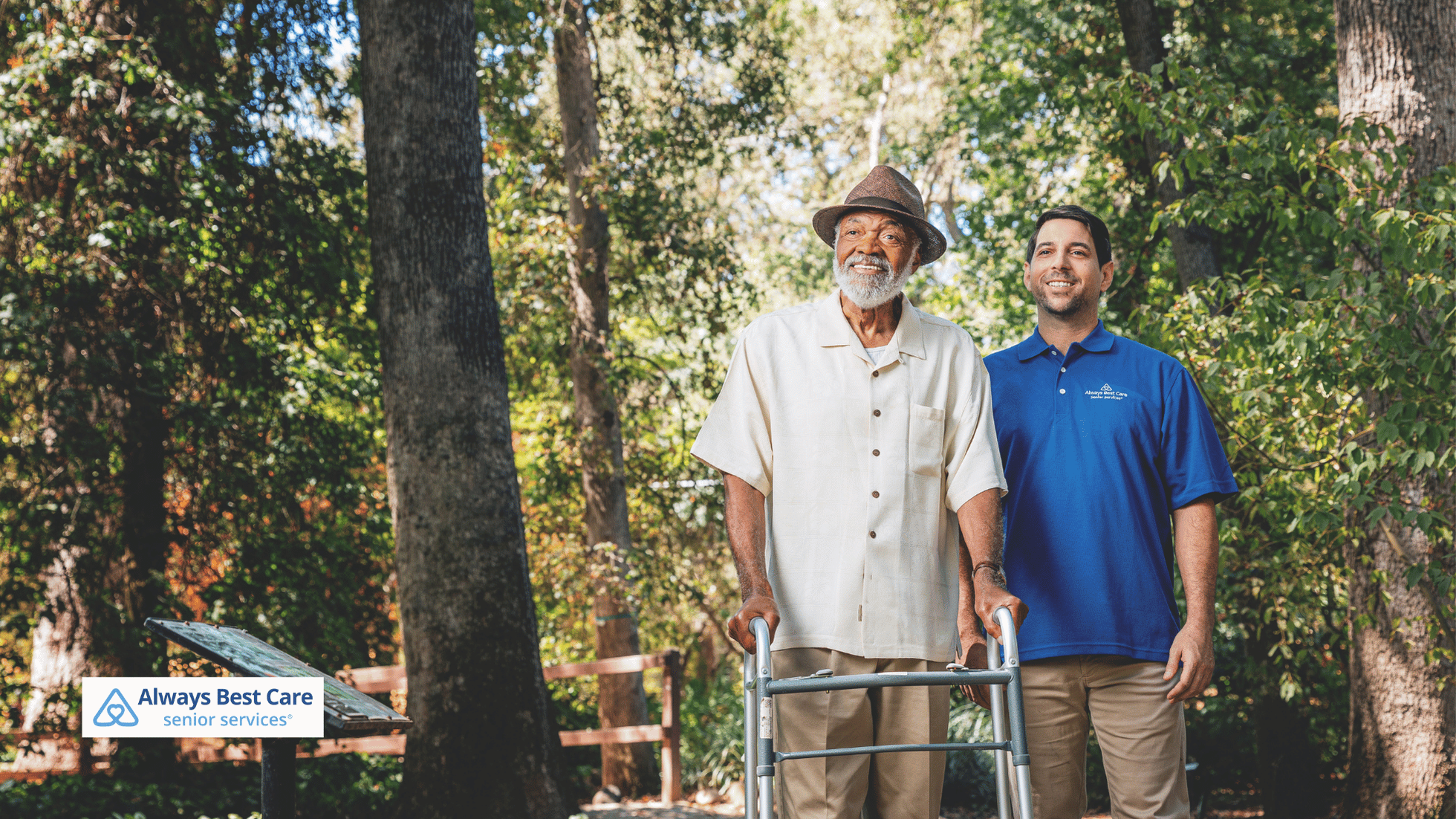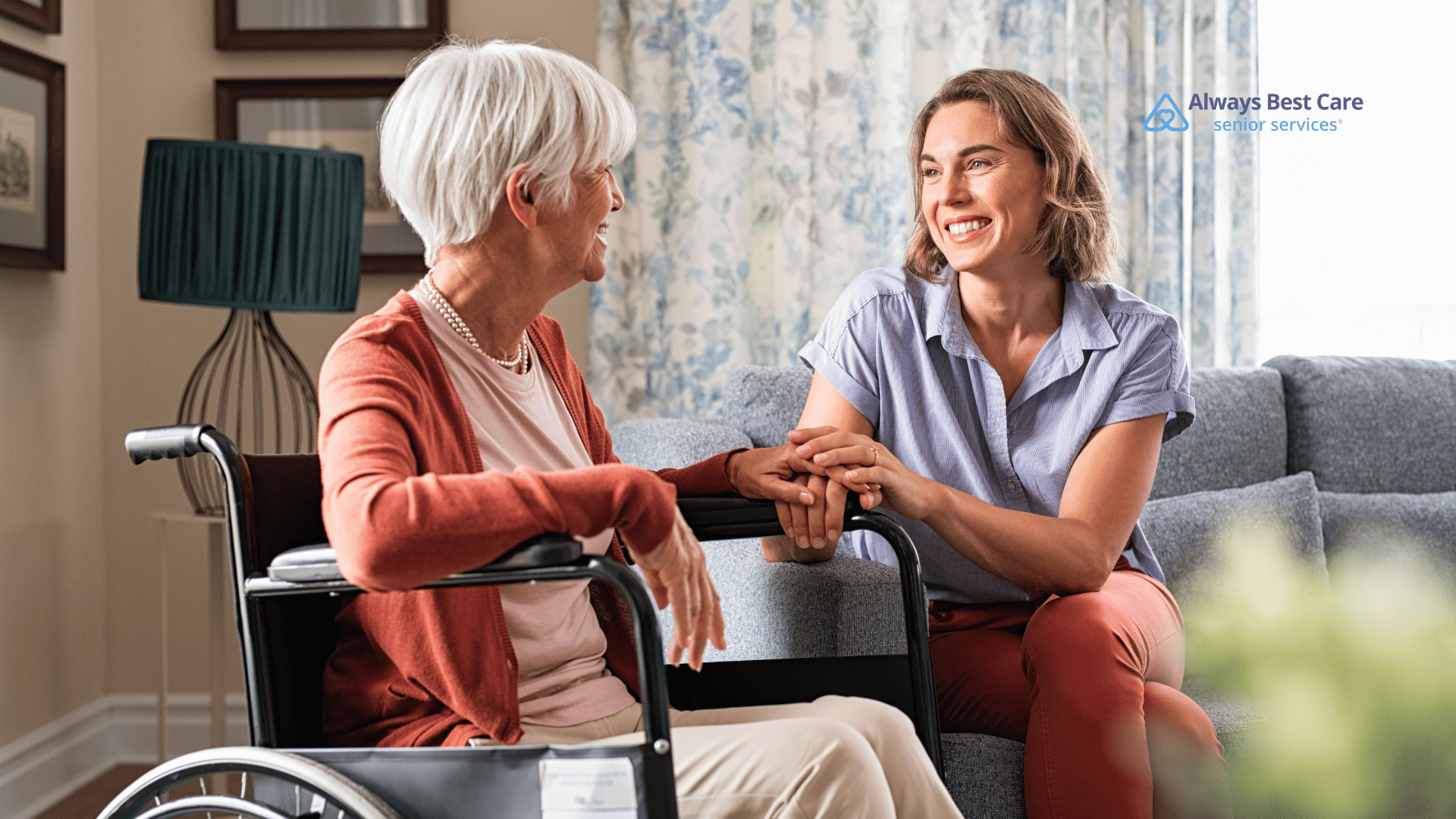Comparing In-Home vs. Facility-Based 24-Hour Care Options in Belmont, MA

Deciding on the right care option for your loved one can feel overwhelming, especially when choosing between in-home and facility-based care.
Each option has its own benefits, and it’s important to consider what will work best for your family’s needs. Let’s break down both choices to help you determine the best fit for your loved one in Belmont.
Table of Contents
Which is Better for Your Loved One: In-Home or Facility-Based 24-hour Care in Belmont, MA?
The decision between in-home and facility-based care hinges on your loved one’s unique needs and preferences. Our in-home care offers a personalized approach, allowing caregivers to focus solely on their loved ones. Facility-based care provides access to a team of professionals in a structured environment.
When weighing the two options, consider your loved one’s level of independence, social preferences, and health conditions. In-home care may be ideal for those who value staying in a familiar setting, while others might thrive in a community atmosphere.
What Does 24-Hour In-Home Care Look Like?
24-hour in-home care provides around-the-clock support, ensuring your loved one has assistance whenever needed. Our caregivers rotate in shifts to ensure someone is always available to help with tasks such as personal care, medication management, mobility, and even companionship.
Care plans are tailored to match your loved one’s specific needs, and adjustments can be made as situations change. This setup allows seniors to stay in their own homes, surrounded by familiar belongings and memories.
What are the Differences in Care Between In-Home and a Facility?
One of the main differences between in-home care and facility-based care is the environment. In-home care allows seniors to remain in their own space, while facility care places them in a more structured, communal setting. Here’s a closer look at how these differences play out:
- Environment and Setting:
- In-Home Care: Seniors stay in their homes, surrounded by familiar belongings, photos, and memories. This can provide a comforting atmosphere and reduce stress. It’s particularly beneficial for those who thrive in a familiar environment or have conditions like dementia, where sudden changes in surroundings can be challenging.
- Facility-Based Care: Seniors move into a new setting, typically a communal living space for multiple residents. This environment is structured with shared areas like dining halls and recreation rooms. While this setup can be a significant change, it also offers opportunities for social engagement with other residents.
- Daily Routine:
- In-Home Care: Our caregivers work around your loved one’s preferred schedule. They can wake up, eat meals, and engage in activities at times that suit their routine, offering flexibility that respects their lifestyle and habits.
- Facility-Based Care: The routine is more structured, often with set times for meals, medication, and activities. This can benefit those who do well with a consistent daily schedule but may be restrictive for those who prefer a more adaptable routine.
- Social Interaction:
- In-Home Care: Social interaction is typically more focused on one-on-one time with the caregiver and visits from family and friends. It can be ideal for those who enjoy personal connections but might miss out on the broader social opportunities that a group setting offers.
- Facility-Based Care: This option offers group activities such as games, exercise classes, and events, providing seniors with a chance to connect with peers. It can be a great option for those who enjoy meeting new people and participating in social gatherings.
- Level of Personalized Care:
- In-Home Care: Care is completely individualized, as our caregivers provide one-on-one attention tailored to your loved one’s specific needs and preferences. This personalized care can adapt quickly to changes in health or daily needs.
- Facility-Based Care: Care is often provided by a team of staff members who rotate responsibilities across multiple residents. While this allows access to various expertise, the level of one-on-one attention may be less compared to in-home care.
- Medical and Therapeutic Services:
- In-Home Care: Our caregivers can assist with medication reminders, mobility, and other medical needs, coordinating with doctors and therapists for in-home visits if necessary. This option suits those with mild to moderate care needs that can be managed outside a hospital setting.
- Facility-Based Care: This provides access to more immediate medical staff, including on-site nurses and physical therapists. It can benefit those with complex medical needs who may require quick access to medical care or more intensive rehabilitation services.
Understanding these differences helps families make the right choice based on their loved one’s lifestyle and care needs. Both our in-home and facility-based referral services have their strengths, and the best option depends on what will provide the most comfort and support for your loved one.
Is In-Home Care Right for Your Family in Belmont?
If your loved one values their independence and prefers the comfort of staying at home, our in-home care may be the best option. It offers a personalized approach and ensures your loved one receives focused, one-on-one attention.
In Belmont, our in-home care can be tailored to fit various needs, whether assistance with daily activities or more intensive medical support. Consider whether your loved one would thrive in their environment or benefit more from the structure and community that a facility provides.
In-Home Care Supports Independence and Personal Comfort
For many seniors, maintaining a sense of independence is important. Our in-home care allows your loved one to continue their daily routines in a familiar environment, whether preparing healthy meals in their kitchen, enjoying a favorite spot in the living room, or tending to a garden.
This sense of normalcy can reduce stress and make the care experience more enjoyable. Additionally, their one-on-one care ensures personal comfort and attention to their unique needs.
In-Home Care Allows for More Family Involvement and Communication
Family involvement is a significant benefit of our in-home care. Since your loved one remains at home, family members can visit more freely and stay actively involved in their care.
Barbara O. shared that we provided a “reliable, caring & skilled night-time helper” for her sister, offering peace of mind from knowing her sister was well cared for. Our caregivers communicate directly with families, providing updates and working together to ensure your loved one is comfortable and happy.
“Thank you Always Best Care Sr. for providing a reliable, caring & skilled night-time helper for my sister at her home.”
Beth K’s experience highlights our comprehensive support, from “residential options, in-home care, and geriatric social work,” which allows families to stay connected and engaged in their loved one’s care plan.
“Always compassionate and efficient, Always Best Care has been a valuable resource in caring for our elderly mothers. With a wide range of expertise, they are able to assist with everything from residential options, in-home care and geriatric social work.”
Steve S., a fellow care agency owner, also emphasizes his trust in our team, calling us “one of the best in the Boston area.” His confidence reflects the close collaboration and transparency that define our approach to in-home care.
“David Robinson’s Always Best Care office is an established, reliable home care agency–one of the best in the Boston area. As a colleague and fellow owner of a home care agency in the community, I can honestly say that Always Best Care provides excellent care and attention to clients and their families. David and his team more than pass the key test, “would I let his office take care of my Mom?”. Absolutely. And that is why we are happy to refer cases which we can not cover outside our area.”
In-home care fosters an environment where family members can offer emotional support and remain closely connected without the restrictions that sometimes come with facility-based care.
How Does In-Home 24-Hour Care Improve Quality of Life?
Our in-home care offers personalized attention, which can lead to better overall health and happiness for your loved one. Caregivers provide companionship, which can help reduce feelings of loneliness and isolation.
Being in a familiar environment can reduce stress and create a sense of stability. With tailored care plans, seniors receive the support they need, whether it’s help with daily activities, physical therapy, or simply having someone around for peace of mind.
What are the Financial Considerations between In-Home and Facility-Based Care?
When comparing costs, it’s important to consider what’s included in both options. Our in-home care typically charges based on the number of hours or level of care required. In contrast, facility-based care often includes additional services like meals, activities, and medical support at one flat rate.
In-home care may be more affordable for those needing part-time assistance, but full-time care can add up. On the other hand, facility-based care often includes a set package, which can benefit families needing more comprehensive services.
Are Safety and Health Standards Superior in an In-Home Care Setting?
When it comes to in-home care, safety, and health are prioritized through a comprehensive approach that addresses both emergency preparedness and proactive accident prevention.
At Always Best Care in Belmont, we view safety as one of the most crucial components of quality care. Our caregivers are trained to maintain high health and safety standards to provide seniors with secure, comfortable environments that adapt to their changing needs.
How Does In-Home Care Address Health Emergencies?
In-home caregivers are trained to provide routine care and are prepared to act swiftly in health emergencies. For example, caregivers monitor changes in a senior’s health, allowing for early intervention if warning signs appear.
They are skilled in recognizing symptoms that may need immediate medical attention and are equipped to contact emergency services or a medical professional as needed. This continuous observation and quick response can be life-saving, giving seniors and their families peace of mind that help is readily available in an emergency.
What Safety Measures Can Be Implemented at Home?
Creating a safe in-home environment goes beyond basic care; it involves thoroughly assessing each senior’s living space to identify and mitigate potential hazards. Our caregivers conduct a detailed safety assessment of each client’s home before starting services, recommending practical adjustments to enhance safety. This might include installing grab rails in hallways or showers to prevent falls, ensuring adequate lighting, or removing obstacles that could lead to tripping.
As mobility or other health conditions evolve, caregivers continue to monitor and adjust the safety features in place. This could involve recommending specialized equipment or new technology, such as fall-detection devices or personal emergency response systems, to help seniors maintain their independence while staying safe.
This ongoing commitment to safety and adaptability in the home helps create a secure environment tailored to each individual’s unique needs and supports their well-being daily.
For families seeking peace of mind, meticulous attention to safety standards in in-home care ensures that their loved ones are well cared for and living in an environment that promotes health, security, and dignity.
Ready to Choose the Best Care for Your Loved One? Contact Always Best Care of Belmont for Expert In-Home Solutions Today!
Finding the right care option for your loved one is a big decision, and we’re here to make it easier. At Always Best Care of Belmont, we offer compassionate, personalized in-home care to meet your family’s needs. Our dedicated caregivers provide around-the-clock support, helping your loved one stay safe, comfortable, and independent in the familiar surroundings of home.
Contact Always Best Care of Belmont at (617) 489-9000 to learn more and schedule your free consultation.





